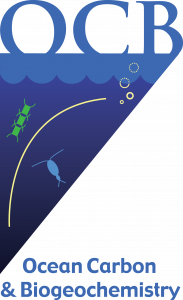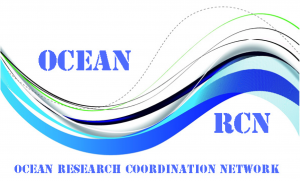International Workshop on FAIR Data Practices for Marine Ecological Time Series (METS) - April 22-25, 2025 (BIOS, Bermuda)
As its final in-person activity, the METS RCN will convene an international workshop on FAIR Data Practices for Marine Ecological Time Series at BIOS in Bermuda. The workshop will bring together globally distributed biogeochemical and biological ocean time series representatives who are interested and committed to FAIR data practices with data managers, informatics experts, and statisticians to:
- Share new biogeochemical and biological metadata templates to enable increased discoverability of ocean time series data
- Share new science outcomes across globally distributed ocean time series programs
- Update recommendations on sampling and analytical protocols from the 2012 Bermuda Time Series Methods Workshop
- Co-develop best practices for responsible use of ocean time series datasets (as a contribution to the Ocean Best Practices System repository)
- Convene hackathon activities on METS data uptake, synthesis, analysis, and visualization
Background & Justification
Sustained ocean time series measurements are fundamental to distinguish between natural and human-induced variability in ecosystems and processes required to advance ecological forecasting. The last international ship-based ocean time series workshop, held in November 2012 (Bermuda), focused on recommendations to improve data comparability. Over the past decade (Fig. 1) the ocean observing community has contributed to numerous efforts and activities in support of building a global network of ocean time series with the aims of:
- Elevating the visibility and utility of these observing assets for understanding climate-ecosystem links
- Improving coordination, communication, and scientific synthesis products across ocean time series programs/sites
- Building consensus on foundational components such as methods and FAIR data practices
A lack of Marine Ecological Time Series (METS) data and metadata reporting standards, combined with numerous disconnected data management efforts, makes it exceedingly difficult for prospective time series data users to find and gain access to these valuable and unique datasets. For many of the biogeochemical and biological parameters that are unique to ship-based Marine Ecological Time Series (METS), there is an urgent need to develop consensus on community-adopted data and metadata reporting standards that will make these data more Findable, Accessible, Interoperable, and Reusable (FAIR).
To address key recommendations from a small 2019 meeting focused on FAIR data practices for ocean time series, a NSF EarthCube-funded METS Research Coordination Network started in 2021. The goals of this RCN are to: Develop and build consensus around FAIR data solutions for ship-based ocean time series; broaden METS data users and applications; and build capacity for METS data analysis, statistics, and data-model integration. Small group meetings over the past two years, as well as an in-person meeting in Boston in April 2023 have enabled members of this team to develop initial use cases for biogeochemical and biological variables commonly measured by ocean time series programs. With the aim of improving data workflows and facilitating more scientific synthesis across time series programs, we are developing a profile for ship based ocean time series in the UN Decade-endorsed Ocean InfoHub.
Parallel to this effort, METS RCN leadership team member Nico Lange (GEOMAR) led the development of a pilot biogeochemical ocean time series data product (Lange et al., 2024) with funding from EuroSea.
Relevant resources and references
Lange, N., Fiedler, B., Álvarez, M., Benoit-Cattin, A., Benway, H., Buttigieg, P. L., Coppola, L., Currie, K., Flecha, S., Gerlach, D. S., Honda, M., Huertas, I. E., Lauvset, S. K., Muller-Karger, F., Körtzinger, A., O'Brien, K. M., Ólafsdóttir, S. R., Pacheco, F. C., Rueda-Roa, D., Skjelvan, I., Wakita, M., White, A., and Tanhua, T.: Synthesis Product for Ocean Time Series (SPOTS) – a ship-based biogeochemical pilot, Earth Syst. Sci. Data, 16, 1901–1931, https://doi.org/10.5194/essd-16-1901-2024, 2024.
Benway, H., J. Buck, L. Fujieki, D. Kinkade, L. Lorenzoni, M. Schildhauer, A. Shepherd, A. White (2020). NSF EarthCube Workshop for Shipboard Ocean Time Series Data Meeting Report. 59 pp. DOI 10.1575/1912/25480
Benway, H. M., L. Lorenzoni, A. E. White, B. Fiedler, N. M. Levine, D. P. Nicholson, M. D. DeGrandpre, H. M. Sosik, M. J. Church, T. D. O’Brien, M. Leinen, R. A. Weller, D. M. Karl, S. A. Henson, R. M. Letelier (2019). Ocean time series observations of changing marine ecosystems: An era of integration, synthesis, and societal applications. Frontiers in Marine Science, https://doi.org/10.3389/fmars.2019.00393
Neuer, S., H. Benway, N. Bates, C. Carlson, M. Church, M. DeGrandpre, J. Dunne, R. Letelier, M. Lomas, L. Lorenzoni, F. Muller-Karger, M. J. Perry, P. Quay (2017). Monitoring ocean change in the 21st Century. Eos 98, doi:10.1029/2017EO080045 (published on 08 September 2017).
Benway, H. M., M. Telszewski, and L. Lorenzoni (2013), Improving Intercomparability of Marine Biogeochemical Time Series, Eos Trans. AGU 94(17), 160.
Lorenzoni, L., Benway, H. M. (Eds), 2013. Report of Global intercomparability in a changing ocean: An international time-series methods workshop, November 28-30, 2012, Ocean Carbon & Biogeochemistry (OCB) Program and International Ocean Carbon Coordination Project (IOCCP), 61 pp. DOI: http://dx.doi.org/10.25607/OBP-12.



